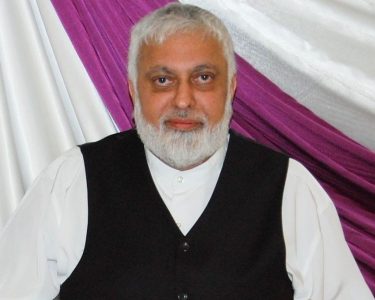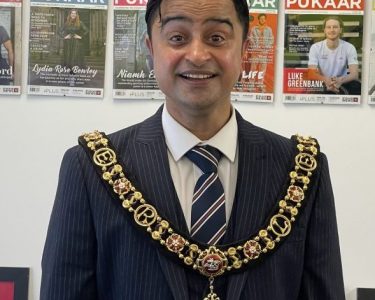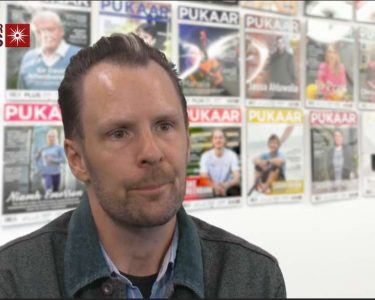Suleman Nagdi MBE is Deputy Lieutenant of Leicestershire and has also served for over 30 years as a volunteer and community advocate with a particular emphasis on interfaith relations. In our latest episode of Let’s Talk More, we sat down with him to discuss faith, charity and community.
Fish and chips is a quintessentially British meal but according to Suleman, also a symbol of welcomed familiarity in his extensive travels: “There’s fish and chips here, there’s fish and chips in Africa. So if fish and chips is the benchmark of somebody who claims that they are part and parcel of the British, then I am British through and through”.
Born in Malawi, the first 20 years of the Deputy Lieutenant’s life were spent in Southern Central Africa; he’d lived in Zambia, Zimbabwe and South Africa by the time he moved to Britain in his late teens. Although he laments the British weather (arguably also a quintessentially British pastime), he admits his transition into British society was relatively smooth due to receiving a British education in Africa. “I grew up at a time when the British mandated territories were there so of course we were British by birth because the Union Jack was flying and our formal education was the curriculum that came from this country,” he explains, adding: “We were already immersed in the British educational system and we knew the norms of British society and therefore integration into society was a lot easier.”
Suleman has dedicated a significant proportion of his thirty years in the country to promoting dialogue and cohesion between the various religious and cultural communities that make up British society. However, in his experience, the notion of tolerance alone isn’t enough to bring communities together. “You know the word that’s normally used is ‘we have to be tolerant in society’ — I think we don’t have to be tolerant, I think we have to be respectful,” he explains, adding: “Because to be tolerant is simply that ‘I tolerate you; I don’t actually connect with you’ but once I respect you, it moves from tolerance to respect.” It is this understanding that has led his success in propelling both diversity and togetherness across the world. To the community advocate, it’s clear that these concepts aren’t inherently in conflict. “The idea is to try and bring — in this crazy world that we’re living in — some sort of harmony, some sort of peace between people”. Discussing the ties that bind us, he explains: “What I’ve noticed is deep down, every human being has something to contribute in the positive.”
His lifetime work has also resulted in the establishment of a variety of charities and to Suleman, offering support to people in a time of need is endlessly rewarding. He has run a death and bereavement charity for 22 years and it’s the first of its kind in Europe, with its services being extended nationally and throughout the continent. It allows minority communities to bury loved ones within 24 hours which in some religions, is an important custom. For Suleman, his work with the charity holds a special significance: “That charity work is very close to my heart because it’s at a time when people lose a loved one and they need the support — an arm round an individual to say ‘It’s OK’”. With the experience he has gained, Suleman has also been able to offer end of life training to hospices, chaplains, universities and hospitals. This is of paramount importance to him as he explains: “Though I come from a Muslim community, my idea has always been to work wider afield and to encompass people of all faiths…The work that I’ve done also includes working and talking in churches, in gurdwaras, in temples, in synagogues, up and down the country. So yes, it’s been a full life”.
The work Suleman has done throughout his life and career has been underpinned by a passion to emphasise what brings us together rather than what drives us apart. Speaking on his passion to serve the community, he explains: “Besides the fact that we may be of different colours or different faiths, before we became an individual of that faith…or even before we identified ourselves with that thing, we were human beings. I think we need to share in our common humanity first”. This is an attitude that he hopes can be upheld by upcoming generations: “I think the satisfaction is getting not your personal satisfaction, but the satisfaction of somebody else who you feel you have actually helped. Giving in life is of course far more important than taking and it’s this giving attitude that I think we have to inculcate among our next younger generation to get them to understand that they need to serve humanity”.
By Gita Sarasia






